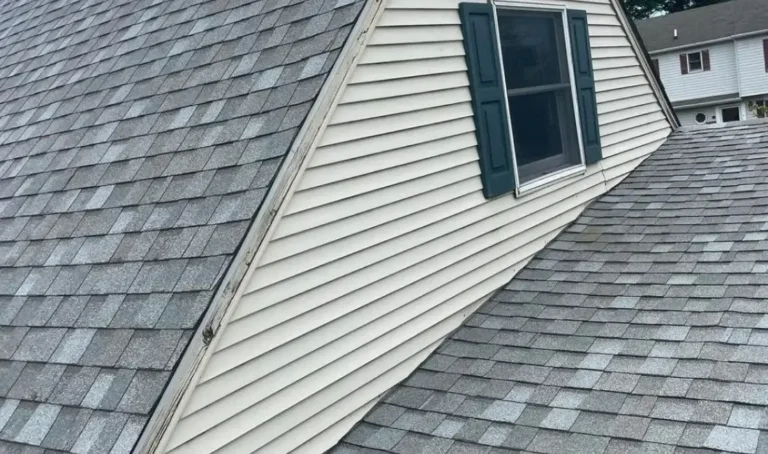Understanding the Importance of Sealing Wire in Cargo Security

Cargo security is vital in the logistics and shipping industry, ensuring the safety and integrity of goods during transit. With shipments traveling vast distances, the risks of theft, tampering, and damage are significant. For companies, protecting shipments is essential not only for operational efficiency but also for maintaining customer trust and loyalty. Delivering intact and unaltered shipments bolsters a company’s reputation, making effective cargo security measures crucial for both product safety and the bottom line.
Sealing wire is one of the most effective tools for cargo security. This simple yet powerful device acts as a barrier against unauthorized access, preventing theft and maintaining cargo integrity. Easily applied to containers, trailers, and other shipping methods, sealing wire serves as a visible deterrent to potential thieves. Its presence indicates that the cargo is secured, making it less appealing for tampering. When used alongside other security measures, sealing wire enhances overall protection, providing peace of mind for everyone involved in the shipping process.
In this blog, we will explore the significance of sealing wire in cargo security, examining its various types, applications, and effectiveness in deterring
The Role of Sealing Wire in Cargo Security
Sealing wire is a specialized tool used in the transportation of goods to secure containers, trailers, and other shipping methods. Its primary purpose is to create a tamper-evident seal that helps maintain the integrity of the cargo inside. When a shipment is sealed with wire, any unauthorized attempt to access the goods will be evident, as the wire will be broken or altered. This visible evidence serves as a strong deterrent against tampering and theft, giving peace of mind to both shippers and recipients.
In the fast-paced world of logistics, the security of shipments can directly impact a company’s reputation and bottom line. By using sealing wire, businesses can protect their products from being tampered with during transit. This is especially important for high-value or sensitive items, where the risk of theft or damage could lead to significant financial loss. Sealing wire helps build trust between suppliers and customers, as it demonstrates a commitment to security and reliability in the shipping process.
Types of Sealing Wires and Their Applications
There are several types of sealing wires available on the market, each designed for specific applications and levels of security. Plastic sealing wires are commonly used for lighter shipments and offer a cost-effective solution for securing cargo. These wires are easy to use and can be quickly applied, making them a popular choice for everyday shipping needs. However, they may not provide the same level of security as metal sealing wires.
Metal sealing wires, on the other hand, offer enhanced security features. They are typically more durable and resistant to tampering. These wires are often used in high-security applications, such as transporting valuable goods or sensitive materials. Specialty sealing wires are also available for unique requirements, ensuring that businesses can find the right solution for their specific needs. This variety of options allows companies to tailor their cargo security strategies based on the nature of the goods being shipped.
How Sealing Wire Deters Tampering
The design and functionality of sealing wire contribute significantly to its ability to deter tampering. When sealing wire is properly applied, it creates a secure bond that is difficult to break without detection. If someone attempts to cut or remove the wire, the damage will be visible, making it clear that tampering has occurred. This feature not only protects the cargo but also discourages potential thieves from targeting shipments that are visibly secured.
For example, there have been instances where companies have successfully thwarted thefts due to the presence of sealing wire. In one case, a shipping company discovered that the visible sealing wire on their containers, along with a container seal, prevented thieves from attempting to break in, as they knew it would be an obvious act of tampering. These real-world examples highlight the effectiveness of sealing wire in enhancing cargo security. When potential thieves see that a shipment is securely sealed, they are more likely to look for easier targets.
The Connection Between Sealing Wire and Other Security Measures
The design and functionality of sealing wire contribute significantly to its ability to deter tampering. When sealing wire is properly applied, it creates a secure bond that is difficult to break without detection. If someone attempts to cut or remove the wire, the damage will be visible, making it clear that tampering has occurred. This feature not only protects the cargo but also discourages potential thieves from targeting shipments that are visibly secured.
For example, there have been instances where companies have successfully thwarted thefts due to the presence of sealing wire. In one case, a shipping company discovered that the visible sealing wire on their containers, combined with trailer seals, prevented thieves from attempting to break in, as they knew it would be an obvious act of tampering. These real-world examples highlight the effectiveness of sealing wire in enhancing cargo security. When potential thieves see that a shipment is securely sealed, they are more likely to look for easier targets.
Choosing the Right Sealing Wire for Your Needs
When it comes to selecting the right sealing wire, there are several factors to consider. First, businesses should assess the type of cargo being shipped. For lighter goods, plastic sealing wires might suffice. However, for high-value or sensitive items, opting for metal sealing wires is often the best choice. Understanding the nature of the goods will help businesses determine the appropriate level of security required.
Another important consideration is the shipping distance and conditions. For long-distance shipments that may encounter rough handling, durable sealing wire is essential. Companies should also take into account the reputation of sealing wire suppliers. Quality sealing wire can make a significant difference in cargo security, so sourcing from reputable suppliers ensures that businesses receive reliable and effective products. Ultimately, choosing the right sealing wire not only protects shipments but also fosters trust in the supply chain.
As we delve deeper into the topic, it becomes clear that sealing wire plays an essential role in cargo security. From preventing tampering to working alongside other security measures, sealing wire is a simple yet effective tool that enhances the safety of shipments. By understanding the various types of sealing wires and their applications, businesses can make informed decisions about their cargo security strategies.
Final Thoughts
In conclusion, the importance of sealing wire in the logistics and shipping industry cannot be overstated. It serves as a critical component in protecting shipments, ensuring that goods arrive safely at their destination. As businesses continue to prioritize security in their operations, the role of sealing wire will only grow in significance. Whether it’s through enhancing trust with customers or preventing theft, sealing wire stands as a vital tool in the ongoing effort to secure cargo in transit.
By investing in the right sealing wire and partnering with trusted suppliers, businesses can bolster their cargo security measures, protect their products, and maintain their reputation in the marketplace. This commitment to security not only benefits individual companies but also strengthens the entire supply chain.





